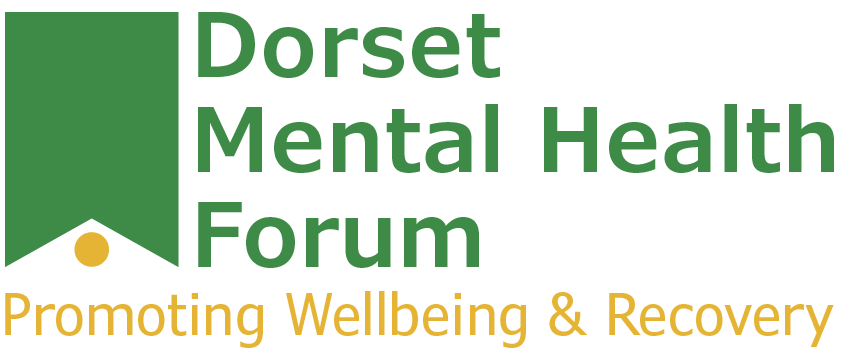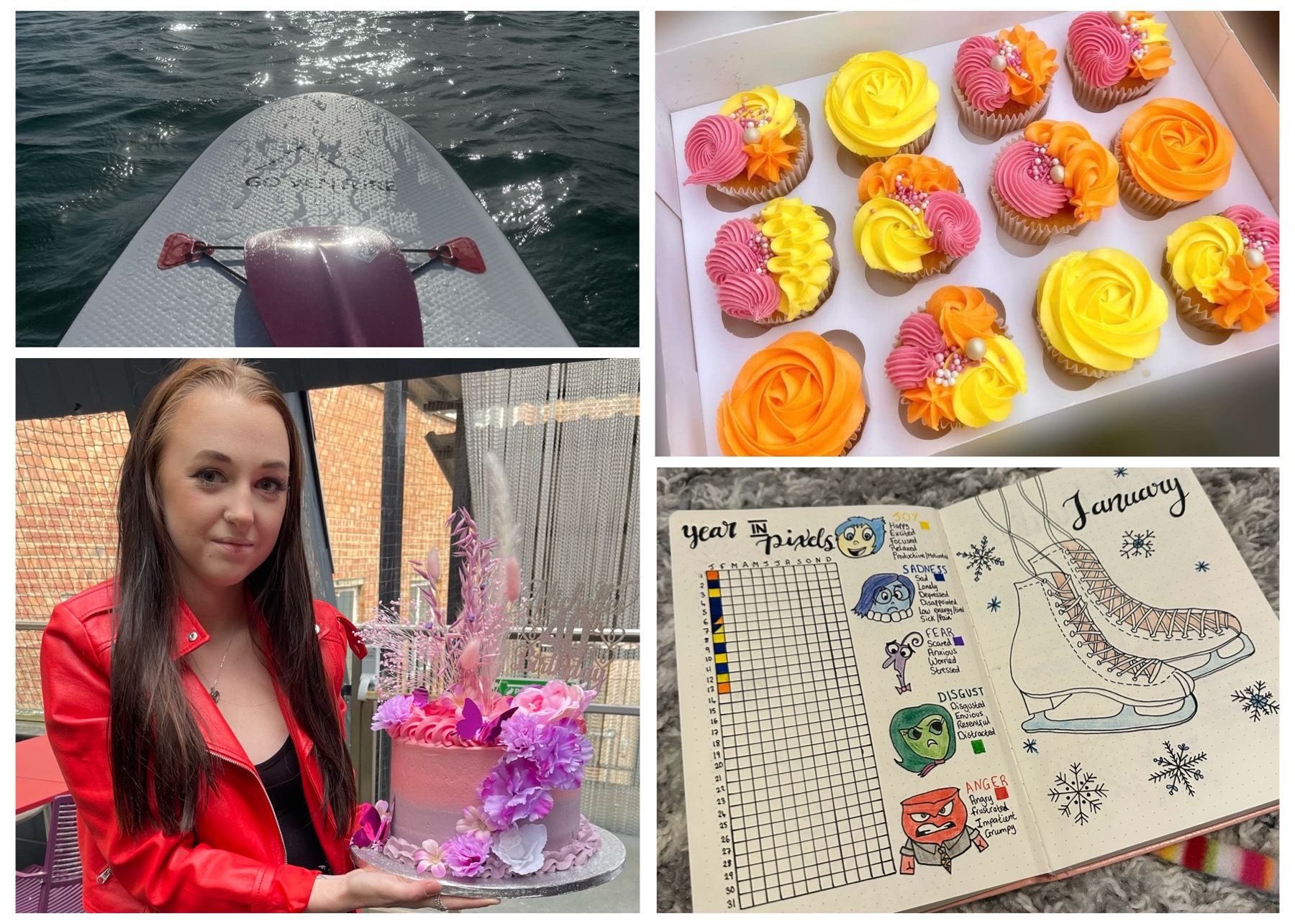I’m Chloe, and I’m a Senior Peer Specialist. I’ve worked for Dorset Mental Health Forum for nearly eight years, but my main role is within the Discovery Project, which is our offer for young people (aged 13-25) and their parents/carers. In my spare time, I love to do things like paddle-boarding, bullet journaling, baking, and spending time with my friends and family. I have two cats called Luna & Winnie and they have both had such a positive impact on my recovery!
I’ve struggled with my mental health for as long as I can remember. I experienced a lot of trauma in my childhood and went on to struggle with depression, anxiety, PTSD, and an eating disorder during my early teenage years. I then spent two years in hospital before transitioning back to the outside world and trying to rebuild my life and independence.
Since the age of 18 I’ve lived independently which, despite being challenging at times, has been the most amazing thing for me. I love having my own safe space that I have created myself. I’ve been in recovery from my eating disorder for 6 and a half years, and later this year I’ll be celebrating 10 years out of hospital, which is an achievement I’ll forever be proud of. I also returned as a peer specialist to one of the adolescent wards I was once a patient on. When I was at my worst I never imagined that I would both be able to have a healthy relationship with food and live by myself out of hospital, let alone support others who are going through similar struggles that I once did.
I’ve always chosen to use the term recovery as opposed to recovered because it’s an ongoing journey; it’s something you consistently choose every day. It takes away the pressure and stigma that you can’t struggle, because recovery is just as much about the difficulties as the successes. You continue to flourish as a person every day you choose recovery, and it doesn’t matter how small the steps you take; you will still be moving forward.
One of my favourite quotes that I share with a lot of people is “My worst days in recovery are better than my best days in relapse.” It’s something that helps me recognise that recovery isn’t linear and that even when things feel really bad, it doesn’t mean you’re back at rock bottom. Two years ago, I lost one of my best friends of 10 years to suicide. I’ve known a few other people since then who have also sadly passed away from their mental health. These losses are one of the many reasons I continue to do the work that I do. It’s so important for those suffering to know that they are not alone, and that recovery is possible no matter how much it doesn’t feel like it, and I hope that by sharing my story, it helps others realise that there is hope.
Recovery has taught me that I’m a lot stronger than I give myself credit for. I’ve gotten through all the moments I never thought I would, and I really am genuinely grateful for my life and where I’ve ended up.
If I could go back in time, what would I say to my younger self, knowing what I do now?
I would tell her that although she would still have struggles, she would always get through them and that each time it would get easier. I’d tell her that people will come and go in your life, and that’s okay. But mostly, she will make it, and everything she goes through will make her stronger (even if it doesn’t feel like it in the moment). She will finally reach a place where her life becomes safe, meaningful, and worth living!


